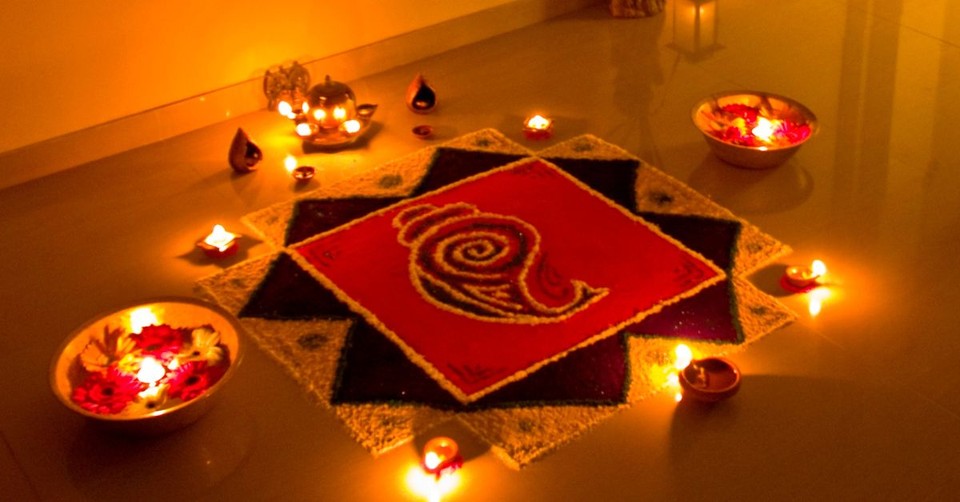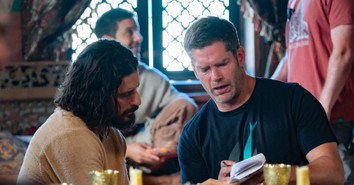Why Christians Should Think Twice before Attending Diwali Celebrations

If you aren’t familiar with it, Diwali is the Hindu festival of lights, symbolizing the spiritual “victory of light over darkness, good over evil, and knowledge over ignorance.” It is marked with home decorations, shopping, fireworks, gifts, feasting, family gatherings, and more. This year, it is celebrated from Monday, October 20, to Tuesday, October 21. It has become increasingly common for Hindus to invite their non-Hindu friends to participate in one or more of the festivities surrounding Diwali. So, should Christians accept? The answer, specifically for Diwali, is “No.” The reason is because this would be dabbling with the occult. Specifically, worshiping a false god or idol.
Diwali is all of that and more.
As a cultural observer, it’s been interesting to watch how this has unfolded on the American scene. And not as a religious event, not as a Hindu event, but more of an almost Hindu-culture event, an Indian culture event, almost like a Greek Orthodox festival.
For example, in celebration of the multi-day festival, Mattel has just introduced its first Barbie Diwali doll. In line with the way the rest of culture is assessing Diwali, Mattel’s news release said that it is releasing the doll “in a continued commitment to promoting celebrations of heritage.” Adding that the “Barbie Diwali doll celebrates India’s cultural richness.”
Actually, no. It specifically celebrates Hinduism. There is a difference.
Perhaps a quick primer would help.
Hinduism has no clearly identified founder, no prophet, no historical events marking its beginning, no institutional structure, and no real creed. And while the philosophy of Hinduism is influential, only 13% of the world’s population are practicing Hindus, and most live in India. In fact, that’s what the word Hindu means—it’s the Persian word for “Indian.”
Hindus have spiritual teachers, known as gurus, and many wandering holy men, known as swamis. They have sacred writings, such as the Vedas, the Upanishads, and the Bhagavad Gita.
But they are best known and most influential for three big ideas. And when I walk you through these three ideas, you’ll say, “Oh, I am familiar with that idea.” You may have just never known that it was Hindu.
The first idea is the “Force”—and yes, this is Hinduism. For the Hindu, there is no such thing as one, all-powerful, personal God who created us. Instead, the ultimate reality is Brahman—an impersonal oneness that is something like an impersonal force of existence. That force can manifest itself in the form of many gods (one estimate is that there are 330 million different Hindu gods).
The main three gods are Brahma the Creator, Vishnu the Preserver, and Shiva the Destroyer. That’s what the mantra “om” is all about. It’s actually spelled “A-U-M,” with those three letters symbolically representing Brahma, Vishnu, and Shiva. Saying that word, “om”, is essentially calling up their essence and worshipping them.
But behind all those gods is one big force or reality, which is Brahman. Not to make Star Wars a primer on Hinduism (even though it’s based on Hindu and New Age ideas), but you can think of Brahman as the Force and the Jedi as the gods.
So while there are many of the manifestations of Brahman through the millions of gods the Hindus worship, Brahman itself – ultimate reality – is not personal. This means that our true selves, our Atman, is at one with Brahman. Our essence is the same; it’s identical to that of Brahman. In their thinking, all is one, and one is all. Or you could say the force is all, and all is the force. Or, as you hear many New Age thinkers put it, God is all, and all is God. Our problem, they say, is that we aren’t aware of our divine nature; we aren’t aware that we are a part of – and at one with – Brahman. As a result, we are bound by this life.
That’s what the law of karma is all about, the second big idea within Hinduism. Karma is the sum of your life actions—good and bad. If you don’t liberate yourself from this life and embrace your divinity, you are bound to this life—and the next life, and the next life, and the life after that. Hindus do not believe that life is linear, going from a beginning to an end. Instead, they believe that it is a never-ending circle of life, death, and rebirth. Yes, that is where The Lion King got that phrase “the circle of life”—it is a Hindu idea
This brings up the third big idea of Hinduism, which is the idea of reincarnation. According to Hindu thought, right now, we are all reaping the consequences of what we did in an earlier life. If you had good karma in a past life, you are living a good life now. If not, then your life will not be so good. Your karma will even determine what you will be in your next life. You can come back a human, an animal, an insect—what you will be reincarnated into in your next life depends on your karma in this life.
This is one reason why all forms of life are held sacred to the Hindus, especially the cow, which is the symbol of Mother Earth. The solution to all of this is to be liberated from the wheel of life, death, and rebirth by realizing that you – as a self – are an illusion. Or, if you remember the Matrix movies, you may recall the scene from the first film where Neo goes to the Oracle and talks with a little boy who is able to bend a spoon. When Neo asks how the boy did it, the boy says that the secret is to remember “there is no spoon.”
Everything is an illusion. Only the impersonal oneness of the energy force of Brahman is real. So, you should strive to detach yourself from this life and attain enlightenment. Again, like Neo freeing himself from the Matrix. You can try to do that through various forms of yoga, action and ritual, through knowledge and meditation, and through devotion. In fact, that’s what the word yoga means—union with, or yoking with, something. And for Hindus and yoga, that means union with Brahman.
This brings us back to Diwali, which is anything but a mere celebration of Indian culture. It is a deeply spiritual event celebrating primarily two gods, worshiping two gods. Celebrating them, honoring them, calling on them. Specifically, the goddess Lakshmi and the god Ganesha (and then along with those, many others like Vishnu).
Make no mistake—Diwali is a celebration of Hindu gods and goddesses. And with all due respect to our Hindu friends, they have to understand that from the Christian faith perspective, this is a stark divide. Attending a celebration would involve the acknowledgment and worship of a false god, the honoring of false gods, and this we cannot do.
So when the invitation comes to participate,
... politely, respectfully, decline.
James Emery White
Sources
Amber Ferguson, “Barbie Gets Desi Makeover for Diwali. Here’s the Meaning Behind the Doll.” The Washington Post, October 5, 2024, read online.
Photo Courtesy: Wikimedia Commons/Subharnab Majumdar
Published Date: October 21, 2024
James Emery White is the founding and senior pastor of Mecklenburg Community Church in Charlotte, NC, and a former professor of theology and culture at Gordon-Conwell Theological Seminary, where he also served as their fourth president. His latest book, Hybrid Church: Rethinking the Church for a Post-Christian Digital Age, is now available on Amazon or from your favorite bookseller. To enjoy a free subscription to the Church & Culture blog, visit churchandculture.org where you can view past blogs in our archive, read the latest church and culture news from around the world, and listen to the Church & Culture Podcast. Follow Dr. White on X, Facebook, and Instagram at @JamesEmeryWhite.
Originally published October 21, 2024.







